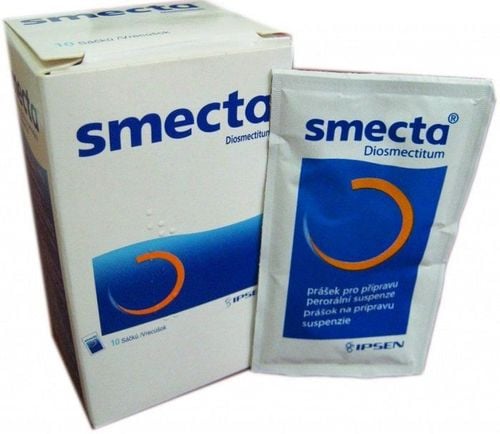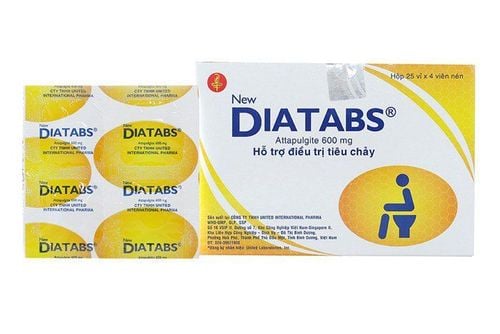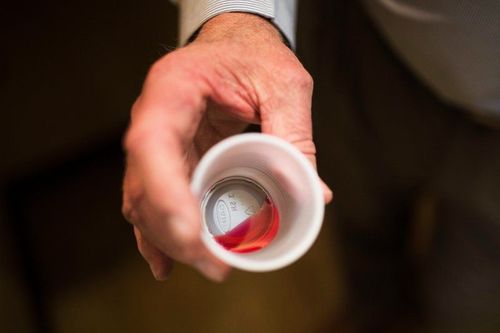This is an automatically translated article.
The article is professionally consulted by resident Doctor Duong Van Sy - Department of Pediatrics - Neonatology - Vinmec Hai Phong International General Hospital.
Diarrhea in infants is a relatively common illness, usually caused by bacteria or viruses. Severe disease can cause dehydration and death, so parents need to master some important knowledge about diarrhea.
1. What is diarrhea?
Diarrhea is a condition in which a child has 3 or more loose stools in a day. This is one of the common diseases, especially in developing countries, including Vietnam. On average, each child under the age of 5 has diarrhea about 3 times a year. In some areas where sanitation is not guaranteed, this number can be many times higher.
Diarrhea is one of the leading causes of death in children. Every year around the world, 3-5 million children die from diarrhea. Diarrhea also causes malnutrition and infection, creating a vicious cycle that costs a lot not only for families but also for society.
Trắc nghiệm: các chỉ số cần chú ý về sự phát triển thể chất của trẻ
Chiều cao, cân nặng của bé ở từng giai đoạn nên là bao nhiêu là bình thường, bao nhiêu là bất thường? Cùng ThS.BS Ma Văn Thấm điểm lại xem bạn đã nắm được các chỉ số phát triển thể chất của bé chưa nhé!The following content is prepared under supervision of Thạc sĩ, Bác sĩ y khoa, Ma Văn Thấm , Nhi , Phòng khám Đa khoa Quốc tế Vinmec Dương Đông(Phú Quốc)
2. Why do children have diarrhea?
Diarrhea is the body's way of getting rid of germs and most episodes last from a few days to a week. Diarrhea is accompanied by fever, nausea, vomiting, cramps, and dehydration. Some of the most common causes of diarrhea in children include:
Viral infections like rotavirus, bacteria like salmonella and, rarely, parasites like giardia. Viruses are the most common cause of diarrhea in children. Along with loose or watery stools, symptoms of a viral gastrointestinal infection often include vomiting, stomach pain, headache, and fever. Food poisoning can also cause diarrhea in children. Symptoms usually come on quickly including vomiting and tend to clear up within 24 hours. Other causes of diarrhea include irritable bowel disease, food allergies, etc.
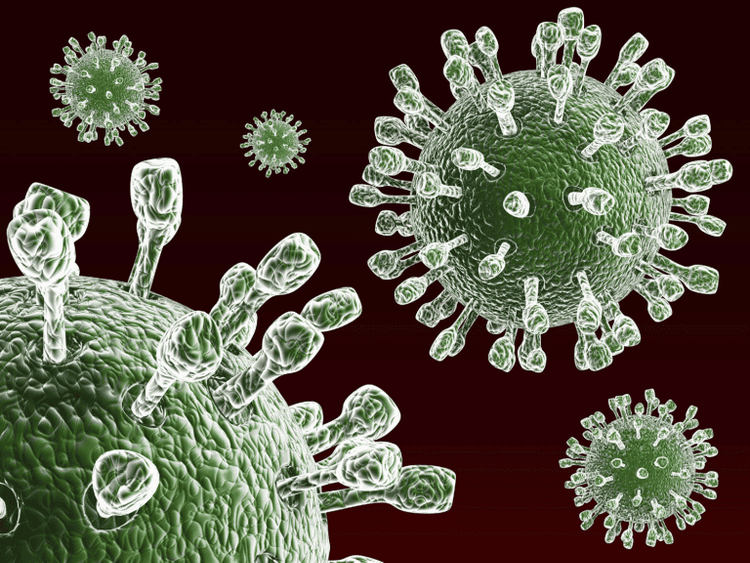
3. What symptoms may appear with diarrhea?
Children with diarrhea are often tired, anorexic, lying down. Children have frequent bowel movements, loose, yellow or green stools, which may be accompanied by sputum, blood, or undigested food (raw stools). Straining to have a bowel movement is a very characteristic manifestation of dysentery
Cholera diarrhea: In the early stages, the patient vomits a lot of clear fluid, may have a slight fever but usually no fever, cramps. In the later stages, the patient has loose stools, up to 10 liters/day. The stools of patients with cholera are characterized by a milky white color like rice water, a slight fishy smell.
Dehydration is the most ominous manifestation of diarrhea in children. Signs of dehydration in degrees are:
Manifestations of mild dehydration:
Observe that the baby's eyes are dry, when crying, there are very few tears or no tears. Dry mouth. Urinating less than usual. For babies who use diaper pants, you can check that the diaper is less wet than usual. The baby becomes less flexible and irritable.
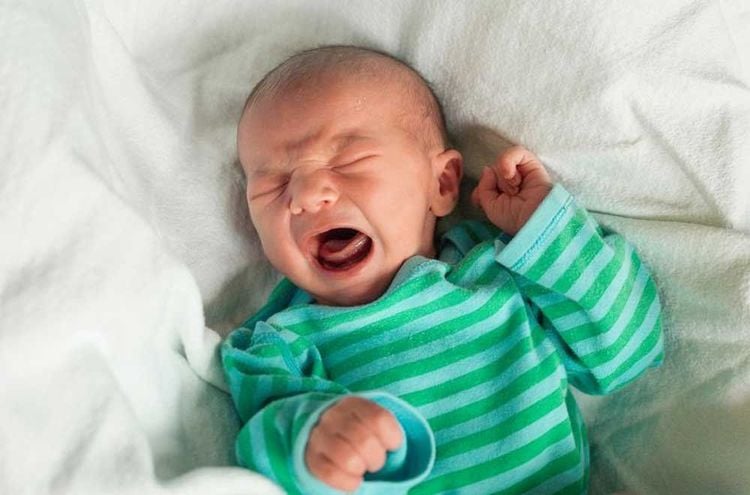
Manifestations of moderate dehydration :
Appearance of sunken eyes. The child is lethargic or lethargic. Baby's skin is dry and less elastic to the touch. Signs of severe dehydration:
In infants, there is a sunken fontanelle (a fontanel is a small, soft area on the top of a child's head). The child has not urinated (anuria) within 6 hours. If you use 2 fingers to gently stretch any area of the baby's skin and then release, the baby's skin cannot return to its original shape due to loss of elasticity. The child is very lethargic, lethargic or may lose consciousness or coma. The pulse is mild or undetectable, and the blood pressure is low or unmeasured. Some other manifestations:
Nausea, vomiting food. Fever: May have a low or high fever, sometimes causing convulsions. Stomachache. Symptoms of dehydration: Thirst, little urine, sunken eyes, dry lips, crying without tears, sunken fontanelle in young children, skin pinch marks disappear slowly.
4. How to handle children with diarrhea?
Rehydration and electrolytes are most important when a child has diarrhea. Types of rehydration solutions:
Oresol: Mix with water in the correct ratio and then give it to the child to drink. Sugar brine: 1 tablespoon salt + 8 tablespoons sugar + 1 liter of cooked water. Salted porridge: 1 tablespoon of salt + 1 handful of rice + 1 liter of boiled water. Salted coconut water: 1 tablespoon salt + 1 liter coconut water. Diet:
Continue breastfeeding if the baby is nursing. After rehydration, you can continue to give the same diet as before the child had diarrhea. Limit vegetables, soft drinks, orange juice. Food needs to be cooked thoroughly, pureed, divided into several times a day. Medicine: If the child has a fever, the fever must be reduced. In some cases, the child may have to use antibiotics, but must be prescribed by a doctor.
5. When to see a doctor?
Parents need to take the child to the nearest medical center if the child has these signs:
The child has diarrhea for more than 3 days, suspected cholera. Vomiting a lot. Abdominal pain or excessive crying. Symptoms of dehydration. Continuous high fever over 38.5 degrees Celsius. Bloody sputum.
6. How can diarrhea be prevented?

Breastfeeding up to 18 - 24 months old. Eat extra weaning from 4-5 months old. Use clean water for hygiene and eating. Wash your hands before eating, when preparing food and after using the toilet. Eat cooked food, drink boiling water, do not eat raw vegetables, do not drink cold water and foods that have not been cooked thoroughly. Use latrines and dispose of children's feces safely. For families with acute diarrhea, it is necessary to sprinkle lime powder or Chloramin B after each bowel movement. The patient's feces and waste must be poured into the latrine, with lime powder, Chloramin B, ... in after each visit to disinfect. Avoid eating and drinking in large numbers such as funerals, weddings, and anniversaries. Restrict entry and exit into epidemic areas. Do not pour waste, washing, washing water and utensils of sick people into ponds, lakes, rivers, wells. Do not throw dead animals and garbage into ponds, lakes, rivers, wells. Instillation of rotavirus vaccine is one of the preventive measures against rotavirus diarrhea in children. Currently, Vinmec Immunization Center has a variety of vaccines for adults and children, including Rota vaccine. The advantages of using the vaccination service at Vinmec can be mentioned as follows:
Children will be examined by pediatricians - vaccines, fully screened for physical and health problems, and given advice. Advice on preventive vaccines and injection regimens, how to monitor and care for children after vaccination before ordering vaccination according to the latest recommendations of the Ministry of Health & World Health Organization to ensure The most effective and safest for children. A team of experienced and professional pediatric doctors and nurses, understand children's psychology and apply effective pain relief methods for children during the vaccination process. 100% of vaccinated children were monitored for 30 minutes after vaccination and reassessed before leaving. Undertake medical supervision before, during and after vaccination at Vinmec Health System and always have an emergency team ready to coordinate with the vaccination department to handle cases of anaphylaxis, respiratory failure - circulatory arrest, ensuring Ensure timely and correct handling when incidents occur. The vaccination room is airy, with a play area, helping children feel comfortable as if they are walking and have a good mentality before and after vaccination. Vaccines are imported and stored in a modern cold storage system, with a cold chain that meets GSP standards, keeping vaccines in the best conditions to ensure quality. Parents will receive a reminder message before the vaccination date and their child's vaccination information will be synchronized with the National Immunization Information System. In the first years of life, children's resistance and immunity are not yet complete, so they are easy to catch life-threatening infectious diseases: diarrhea, chickenpox, encephalitis, whooping cough, measles, .. .So, schedule your baby's vaccination package at Vinmec so that the child can develop the healthiest and most comprehensive.
Please dial HOTLINE for more information or register for an appointment HERE. Download MyVinmec app to make appointments faster and to manage your bookings easily.







